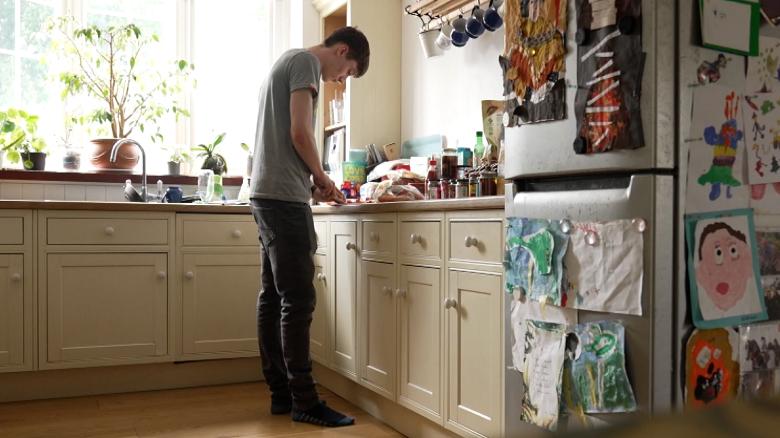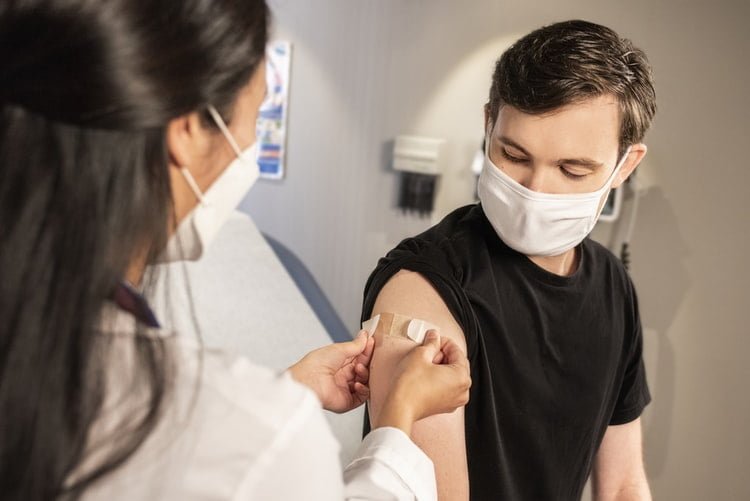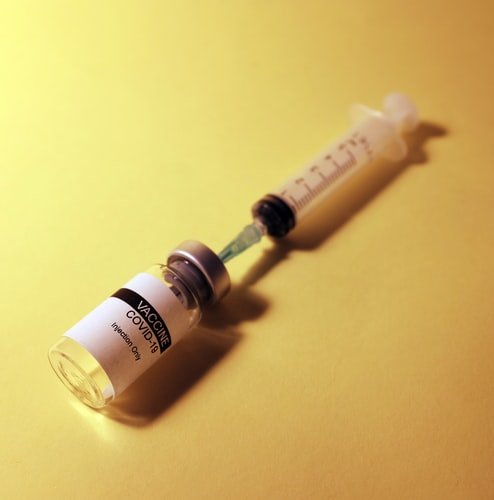Parental anxiety is high as more children return to school without the protection of a Covid-19 vaccine for at least another few months.
Parents have cause for concern. Following months of decline, the virus is now infecting the unvaccinated.
Adolescents as young as 12 years old are eligible for vaccination against Covid-19, but younger children are not. For the week ending August 26, children accounted for nearly a quarter of all reported cases. The numbers have “increased exponentially,” reaching levels not seen in the United States since last winter, according to the American Academy of Pediatrics.

Children have been largely spared the worst effects of Covid-19 – hospitalizations and deaths are far less common in children than in adults – though children’s hospitals are rapidly filling up in Covid-19 hotspots across the country.
A vaccine for children can not come soon enough, but the process is taking longer than anticipated.
“We had hoped to have something in place before attempting to reintroduce children to the classroom, but unfortunately, that has not been possible,” said Dr. Emily Chapman, senior vice president and chief medical officer at Children’s Minnesota.
Covid-19 vaccination schedule for younger children
Trial data for Covid-19 vaccines for younger children is still being gathered. Once vaccine manufacturers obtain trial results, they must submit them to the US Food and Drug Administration, which will evaluate the vaccines for approval.
Dr. Scott Gottlieb, a former FDA commissioner who now serves on the board of directors of Covid-19 vaccine manufacturer Pfizer, said Sunday on CBS’ Face the Nation that the company will likely be able to submit data for 5-11-year-olds for authorization “sometime in September” and then submit an application for emergency use of the vaccine “as early as October.”
“This puts us on track to have vaccines available in late fall, or more likely, early winter, depending on how long the FDA takes to review the application,” Gottlieb said.
Once a company submits to the FDA, there is no official timeline. Considerations for emergency use can take several weeks.

“There is always something that changes our perceptions,” said Dr. Stanley Perlman, a pediatrician and professor of microbiology and immunology at the University of Iowa Health Care. “Of course, we want it done quickly, but we also want it done correctly.”
When asked Wednesday whether the Covid-19 vaccine for young children would be approved before Thanksgiving, Dr. Anthony Fauci, director of the National Institute of Allergy and Infectious Diseases, told CNN’s Wolf Blitzer that he hoped so but did not want to get ahead of the FDA.
“They should have the data by the end of September, at the very least in one of the companies,” Fauci noted.
“The data will then be presented to the FDA, which will decide whether to grant the emergency use authorization or some other mechanism.”
Dr. Rochelle Walensky, director of the Centers for Disease Control and Prevention, expressed optimism Wednesday during a National Parent Teacher Association town hall that the Pfizer vaccine would be available to children in 2021.
“Everybody is examining this with a sense of urgency. Everyone understands how critical vaccine access is for those children. ” When questioned about the timeline, she stated. “My understanding of the timeline is fairly consistent with what has been stated: early fall is when we should expect to see the data, and then it will be in the hands of the FDA. And I’m hoping for a resolution by the end of the year. “
Data on 2-to 5-year-olds may be available shortly after the older children’s data. For the youngest children, Pfizer said it could have sufficient research by October or November and then petition the FDA for emergency use.
Moderna’s trial is underway, but is lagging behind Pfizer by a few months. Johnson & Johnson does not expect to begin its numerous trials on children until the fall.
Why does it take longer for a vaccine to be administered to younger children?
Hundreds of millions of adults have been vaccinated, demonstrating the safety and effectiveness of the Covid-19 vaccines, but these results do not replace the research needed for children.
“As much as we would like to begin immunizing our children immediately, it is critical that we take this time to ensure the science is rigorous,” Minnesota’s Chapman said.
The pediatric version of the Covid-19 vaccine is based on results from adult trials and a comprehensive pediatric trial.
Adult research expedites the process. Perlman explains that for children as young as 12, the companies did not need to enroll the 30,000 people required for adult trials because they could use a process called “immunobridging.” The data indicated that this age group’s immune response was comparable to that of adults.
Companies take a similar approach with younger children, but the FDA requested six months of follow-up safety data in early August, rather than the two months requested for adults. Additionally, it requested that Pfizer and Moderna double the number of children aged 5 to 11 participating in clinical trials.
The CDC’s vaccine advisers concluded in June that while there is a possible link between the mRNA Covid-19 vaccine and extremely rare cases of heart inflammation in adolescents and young adults, the benefits of vaccination clearly outweigh the risks. The cases of inflammation appeared to be mild, and they resolved spontaneously or with minimal treatment.
Dr. James Versalovic, interim pediatrician-in-chief at Texas Children’s Hospital, said recruiting additional children for the Pfizer and Moderna trials was not a problem. Numerous trial locations have lengthy waiting lists. However, the trial expansion added at least one month to the research process.

“We all agreed it was worthwhile to add more robust data to the trials in order to reassure parents across the country. It does extend the trial, but only slightly. ” According to Versalovic,
‘Children are not to be confused with small adults’
Trials for children’s vaccines begin with adults.
“Typically, any vaccine candidate, even for other conditions, would be evaluated first in adults and then in children,” explained Dr. Kari Simonsen, who is leading the Pfizer vaccine trial at Children’s Hospital & Medical Center in Omaha. “We can not assume that the safety and tolerability of medicines are the same in children as they are in adults,” she said.
This is due to biology.
“As pediatricians are fond of saying, children are not miniature adults. Children are simply that: children, “Versalovic stated. “As their bodies develop, they will react differently, and we must treat them accordingly.”
When the testing reaches the children’s phase, scientists make the best educated guess as to what dose would be safe and elicit an immune response. The levels and timing are determined by the developmental stage.
“By and large, our children’s immune systems are very active and responsive, and we believe that smaller doses of vaccine will elicit an adequate response in a child to successfully fight infection,” Chapman explained.
As with any vaccine, it must undergo a three-phase trial prior to FDA approval. The first phase tests the vaccine’s safety in approximately 20 to 100 healthy children.
Due to the expedited nature of these trials, scientists have combined phases 2 and 3 to allow for more steps to be completed concurrently, Versalovic explained. During these phases, scientists monitor safety and conduct tests to determine whether the vaccine stimulates children’s immune systems. Hundreds, if not thousands, of children are recruited at this stage. Some receive the vaccine, while others receive a placebo, and the results are compared.
After completing these steps, a company may approach the FDA for authorization or approval.
If the FDA approves the vaccine, it will then be reviewed by the CDC’s Advisory Council on Immunization Practices. Additionally, this committee develops a formal recommendation for the vaccine’s delivery, storage, timing, distribution, and administration. The committee’s recommendation becomes official when it is reviewed and approved by the CDC director.
Children can remain Covid-19-free during these interim months, experts say. Adults, on the other hand, will have to assist them.
“The best thing we can do for them is to surround them with vaccinated adults,” Chapman explained. “And surround them with mask-wearing individuals who maintain their masks as much as possible.”

